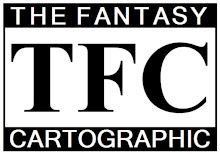As lovers of the natural world and beings who understand, in ways that man nor any other beings do, the processes of the nature world, Elves understand the importance of the sun on all life. The sun is a symbol of their first god. As such, the original word for sun forms the base of many different words in their language. Excellent astronomers, the Elves paid particular attention to the motion of the sun through the sky and have used their knowledge of the sun's movement in their language.
One area of language where that fact is most apparent is in their words for the four cardinal directions. The elves understood that the sun travels to its most northern point in the sky on the summer solstice and from that they derived their word for 'north'. The Elvish word for north is based upon the three word bases that mean: "Toward" + "Summer" + "Sun"
By the same token, the word for south is based upon the sun reaching its most southern point in the sky in the winter on the winter solstice. The Elvish south is based upon: "Toward" + "Winter" + "Sun"
East and west are based upon the word bases that describe sunset and sunrise:
"Toward" + "Sun" + "Set" = West
"Toward" + "Sun" + "Rise" = East
The above examples show that the motion of the sun and the words that describe that motion are instrinsic to the Elvish language. Just as important are words that describe time and its measurement. The following words need to be considered:
Year = The length of time between the sun appearing at one point in the sky and the next time that it appears in that same point (with respect to the other stars in the night sky). The Elves have no concept of the world's rotation about the sun (if, in fact, the world does rotate about the sun) therefore the term 'year' is based upon the sun's motion around the world.
Day = The length of time between the sun appearing at its highest point during a given daylight period (noon) and the next following time at which the sun reaches its highest-most point in the sky (the next noon).
The Elvish words for 'year' and 'day' are closely related. Other terms which relate to time-keeping, including "month" and "week", are less dependent upon the sun and are actually artificial constructs used in the formation of various calendars. As such, they are purely cultural. While the Elves developed some form of calendar, its specifics will not be discussed here (as I have not yet worked out the details). One unit of time that is purely arbitrary that I have decided to define is the hour. The elves, as the longest lived of the sentient races and, theoretically, those who have existed the longest, were the first people to split their day into twenty-four "hours". Therefore, for most races in the world today, the day is split up into twenty-four hours.
In choosing to split the year and the day up into shorter periods, the elves looked at the natural lifecycles of most creatures in nature. In almost all cases, all living things went through four stages of life. The elves defined these stages as: Birth (and early growth), Maturity, Aging, and Death. They have used these same stages in the development of their words for the seasons and the time of day.
The Elvish words for the seasons and time of day are made up of word bases that mean:
Spring = "Season of" + "Birth"
Summer = "Season of" + "Maturity"
Autumn = "Season of" + "Aging"
Winter = "Season of" + "Death"
Morning = "Time of" + "Birth"
Afternoon = "Time of" + "Maturity"
Evening = "Time of" + "Aging"
Night = "Time of" + "Death"
Subscribe to:
Post Comments (Atom)








No comments:
Post a Comment